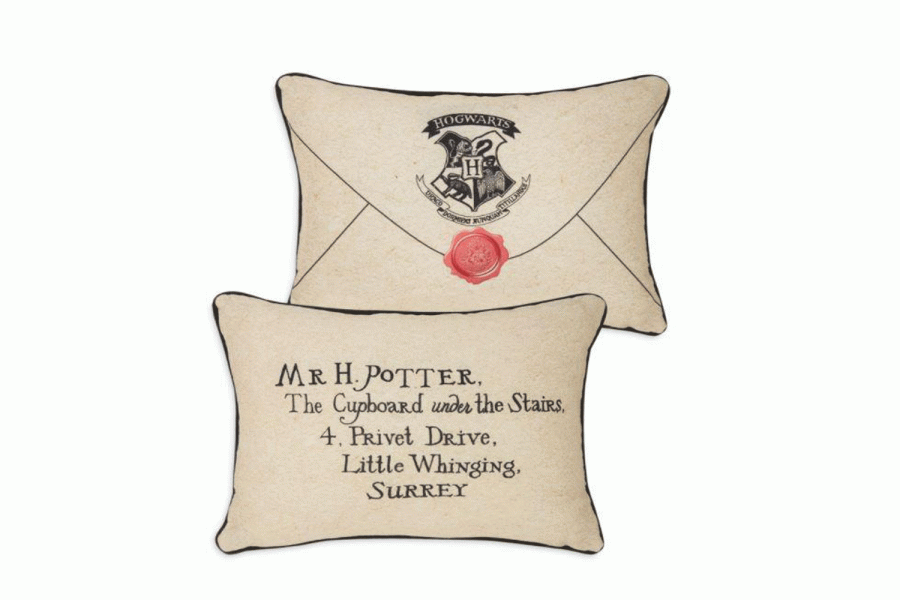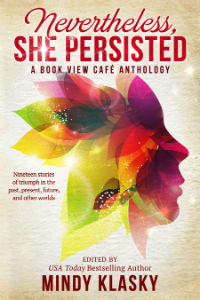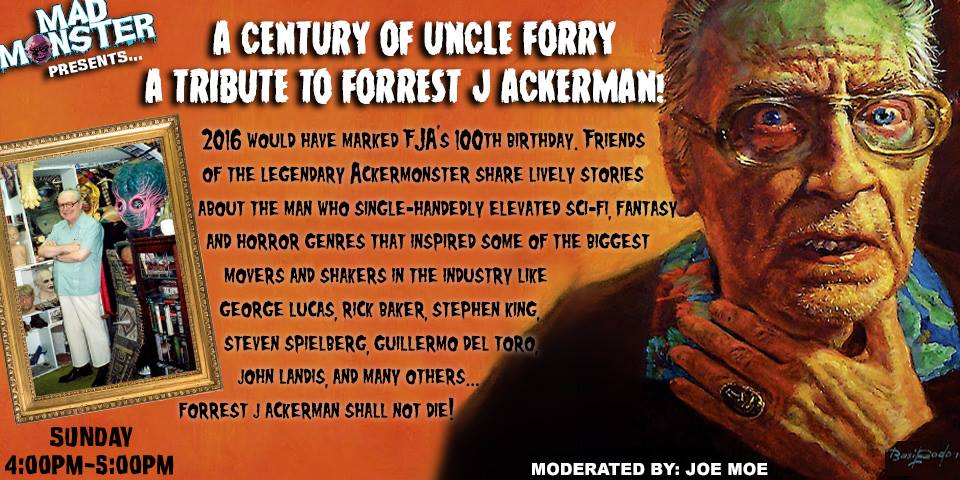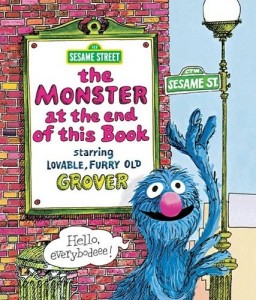(1) DOZOIS REMEMBERED AT NYRSF. Via David Langford comes news that New York Review of Science Fiction #349, a Special Gardner Dozois Memorial Issue, is available as a free download.
Memories, anecdotes, appreciations, confessions, and clickbait, from:
Michael Bishop • F. Brett Cox • Jack Dann Samuel R. Delany • Andy Duncan Greg Frost • Eileen Gunn • Joe Haldeman John Kessel • Nancy Kress • George R.R. Martin • Mike Resnick Darrell Schweitzer • Nisi Shawl Allen M. Steele • Michael Swanwick Lynne M. & Michael Damian Thomas Gordon Van Gelder • Howard Waldrop Patty Wells • Henry Wessells Fran Wilde • Sheila Williams
Michael Swanwick’s contribution leads off the issue:
Daredevil: Gardner appeared as a character in a Daredevil comic book. I am not kidding you. It was a minor role. His friend George Alec Effinger, aka “Piglet,” played a larger part in the plot, much to Gardner’s pretended chagrin. “I don’t know why I couldn’t get to beat up crooks,” he would say. “Piglet did!”
Eccentrics: Susan Casper loved to relate how she had once overheard two writers bemoaning the fact that, with the deaths of some of the founding fathers of science fiction, there were no longer any great eccentrics in the genre. Those two writers were Gardner and Howard Waldrop.
(2) INVALUABLE MAPS. The Guardian has three excerpts from The Writer’s Map, An Atlas of Imaginary Lands, ed. Hew Lewis-Jones. In the excerpts, called “Wizards, Moomins and pirates: the magic and mystery of literary maps”, Frances Hardinge discusses the map she made of Tove Jansson’s Moominland, Miraphora Mina writes about the Marauder’s Map featured in Harry Potter and the Prisoner of Azkaban, and Robert Macfarlane writes about his map of Treasure Island.
I remember poring over the Moominland map at the front of Tove Jansson’s Finn Family Moomintroll. The map is homely, crowded and jubilantly out of scale, yet also haunting. Like the books themselves, the map always touched me with a gentle and inexplicable sadness. I imagined the Lonely Mountains isolated by their own vastness and strangeness, their slow, cold hearts filled with a drear and incurable loneliness.
But even then I noticed that one feature of the little map was not accurate, except in the sense that a stopped clock is right twice a day. Near a bridge is drawn a small tent, and beside it sits a little figure in a tapering hat. This is clearly meant to show the campsite of the green-clad, harmonica-playing Snufkin. But Snufkin cannot be pinned to a location so easily. He is an inveterate nomad, vanishing from the Moominvalley for long months at a time, then returning without warning or explanation. He was probably packing up his tent before the ink on the map had dried.
(3) NARCOTIC POWERS. Lev Grossman also endorses the cartographic impulse at Literary Hub: “Lev Grossman: Why We’ve Always Needed Fantastic Maps”.
I mention this as one example of the strange narcotic power that maps have, especially fictional ones, even when they’re present only in trace quantities. Of course I also had the usual transports over maps of Middle-earth, and Narnia, and the archipelagos of Earthsea, and the Hundred Acre Wood, and The Lands Beyond, where The Phantom Tollbooth took place. But I could get a contact high just from the cartographical border of the Uncle Wiggily board game. All maps are fascinating, but there’s something extra-mesmerizing about maps of places that don’t exist. Maps are part of the apparatus of reality, and the navigation thereof. There’s a subversive, electric pleasure in seeing them miswired up to someplace fictional. In most cases, the closest you can get to actually visiting the land in a fictional map is by reading about it. But in my youth I got a little closer. I did this by playing Dungeons & Dragons.
(4) DEMOLITION AND SALVAGE. Aliette de Bodard has a guest post on Chuck Wendig’s blog about “Cannibalizing A Draft (Or: The Art Of Rewriting)”.
…I looked at my field of ashes draft and thought I might as well toss it in the bin: usually I manage to salvage scenes but this felt like no single scene was working properly.
I moped for a couple of weeks (a totally writer thing to do! Well, at least this writer!) And then I sat down, turned to a fresh page in my brainstorming notebook, and wrote, very deliberately, “list of current scenes in the draft”, and “list of scenes I would like in new draft” (ok, it might have been a teensy bit more cryptic since they were notes to myself). I also took another notebook and did pages of brain dumps that were essentially me talking to myself about what I needed to fix. Writing it down without judgement was actually super helpful to unlock the issues and possible fixes: since it was longhand and not on a computer, I didn’t feel like it was a final story or even graven in stone. It forced me to keep thinking, to keep track of what I was doing, but not in a way that paralyzed me….
(5) HE CONTROLS THE VERTICAL. While it’s cliché to ask an sf writer “Where do you get your ideas?”, Alastair Reynolds is happy to tell you where he got one of his — “Oh, Atlanta”.
I haven’t been back to Atlanta since 1992, but the hotel did have one lingering influence on my work which that article prompts me to mention. Those swooping interior elevators left a big mark on me, and when I came to write Revelation Space – which I started later that year – they became the model for the elevators in the Nostalgia for Infinity, especially the part where Ilia Volyova’s elevator plunges through the vast interior of the cache chamber. When, in Chapter Two, Ilia’s elevator announces its arrival at the “atrium” and “concierge” levels, that’s all down to the Marriot Marquis. I’d never been in an elevator that spoke before.
(6) TOUGH DAY FOR WOMBATS. My goodness!
Someday I will recover! pic.twitter.com/seUo1HYPY7
— Kingfisher & Wombat (@UrsulaV) October 23, 2018
(7) LOVECRAFT CONTINUES. Paul St.John Mackintosh considers the writers who are “Revising Lovecraft: The Mutant Mythos” in the LA Review of Books.
You can’t understand Lovecraft’s conflation of personal miscegenation and hereditary flaws with outside threats, social decay, and vast panoramas of evolution across Deep Time without first understanding the turn-of-the-century traditions within mainstream experimental literature and polemical pseudo-scientific writing that influenced him. Lovecraft may have been a bizarre, original outlier in the context of 1920s horror or science fiction, but he was completely comprehensible (and even representative) within these older and larger traditions. Many other far-right literary figures on both sides of World War I share much of Lovecraft’s grab-bag of Symbolist, Decadent, Spenglerian, and world-weary fin-de-siècle values and tropes. Period clichés of Yellow Book dandyism and racial doomsaying abound in this context. D’Annunzio, Hamsun, and Jean Lorrain would all have recognized a kindred spirit in Lovecraft, and period readers of Max Nordau’s Degeneration and sponsors of the Race Betterment Foundation would recognize familiar ideas, thinly recast, in Lovecraft’s oeuvre.
(8) RESISTANCE. Eneasz Brodski at Death Is Bad comes out “Against ‘Networking’”.
…So I hate it when people refer to going to these sorts of events as “networking.” I dislike the whole concept of networking. It makes people feel like tools. Networking implies business. It’s about profit and career. I never approach a friend with “Hey, you wanna network on Saturday?” I never ask a partner “Hey, I miss you, haven’t networked with you in a bit, got plans this weekend?” So why the hell am I “networking” at a convention about one of my passions in life?
I blame capitalism. Apparently one can’t even have fun without feeling guilty, unless it’s about advancing oneself in life. >:( I just like meeting people and talking and making acquaintances. I don’t expect anything from any of these evenings except a fun evening.…
(9) STILL GOLDEN. The Scientific American blog presents a profile of sff writer James Gunn, “Can Science Fiction Save the World?”
There was once a time when robots roamed the surface of Mercury, when a shape-shifting alien emerged from the ice of Antarctica, and when a galactic empire of 25 million planets spanned the Milky Way. It was called the “Golden Age” of science fiction, the period from the late 1930s to the late 1940s, when pioneering authors such as Isaac Asimov and Robert A. Heinlein wrote their first mind-bending stories. And though newer literary movements have mutated sci-fi’s DNA since then, the last surviving storyteller of the Golden Age—95-year-old James Gunn—is still writing.
(10) TODAY’S BIRTHDAYS.
[Compiled by Cat Eldridge and JJ.]
- Born October 23, 1918 – James Daly, Actor known best to genre fans as Flint in the Star Trek original series episode “Requiem for Methuselah”. He also played the simian prosecutor in Planet of the Apes, and had the role of the sinister pioneering doctor in what was possibly the first movie about providing organ transplants from the body parts of clones, The Resurrection of Zachary Wheeler. In addition to roles on The Invaders, Mission: Impossible, The Twilight Zone, and The Evil Touch, he appeared in the Wernher von Braun docudrama I Aim at the Stars.
- Born October 23, 1919 – Roy Lavender, Aerospace Engineer, Writer, Conrunner, and Member of First Fandom. He was one of the early members of the Cincinnati Fantasy Group (the third-oldest continuously running SF fan club), a member of the National Fantasy Fan Federation, and a co-founder of Midwestcon. He sent out an annual newsletter in which he discussed both scientific and science-fictional subjects. He and his wife, DeeDee (who was also a member of First Fandom) played instrumental roles in the planning and running of Cinvention, the 7th Worldcon, in 1949. He later moved from Ohio to California, where he was part of John and Bjo Trimbles’ sercon (serious and constructive) fan group The Petards, formed to actually discuss SF books (out of disgust with those feckless socializers in LASFS). He was Fan Guest of Honor at Kubla Khatch in 1994.
- Born October 23, 1942 – Michael Crichton, Physician (non-practicing), Writer, Director, and Producer who became disillusioned with medicine after graduating from Harvard Medical School. He went on to write many genre novels which were made into movies (or vice-versa), including the Hugo-nominated Westworld and The Andromeda Strain (which won a Seiun Award), The Terminal Man, Sphere, the Hugo-winning Jurassic Park, The Lost World, Eaters of the Dead (filmed as The 13th Warrior), and Timeline. He wrote and directed Looker, which is notable for being the first commercial film to attempt to make a realistic computer-generated character, and was also the first film to create 3D shading with a computer, months before the release of the better-known Tron. (JJ is sorry to report that The Suck Fairy has had a go at many of these films – sometimes before they even got to the theaters! – but at least Timeline had the virtue of featuring Billy Connolly, Gerard Butler and Marton Csokas.)
- Born October 23, 1950 – Wolf Muser, 68, Actor originally from Germany who has had recurring roles on Alias, Grimm, and The Man in the High Castle, guest roles in episodes of Carnivale, Timecop, and Misfits of Science, and appearances in the films Kiss Me Goodbye, Pandora’s Clock, and Final Equinox. He played a major role in The Beast Within: A Gabriel Knight Mystery, an interactive movie point-and-click adventure game released by Sierra On-Line in 1995 which was produced entirely in full motion video, was noted by a reviewer for being “one of the few computer games to actually involve personal, meaningful growth in a player-character”, and was named Game of the Year by Computer Gaming World.
- Born October 23, 1953 – Ira Steven Behr, 65, Television producer and screenwriter, most known for his work first on Star Trek: The Next Generation, but especially on Star Trek: Deep Space Nine, for which he served as showrunner and executive producer, and for which he wrote 53 episodes. He also had a hand in such genre series as Dark Angel, The 4400, The (new) Twilight Zone, Alphas, and Outlander, for which he is Executive Producer. He is credited with the DS9 novel The Ferengi Rules of Acquisition, and he has been the driving force, as producer, behind the DS9 documentary What We Left Behind, which is now premiering in selected theaters.
- Born October 23, 1959 – Sam Raimi, 59, Writer, Director, and Producer known for his frequently over-the-top genre works, including Hercules: The Legendary Journeys, Young Hercules, Xena: Warrior Princess, the cult horror Evil Dead series, the original, Hugo-nominated Spider-Man trilogy, Darkman, and Oz the Great and Powerful. Okay, he produces lots of popcorn video. Let’s now give this writeup a true genre connection: Kage Baker, who was a dyed-in-the-wool Bruce Campbell fan, reviewed not only The Adventures of Brisco County Jr. for us over at Green Man Review, but she did a very nice look at Jack of All Trades, which Raimi produced and of which Campbell is the star. For your reading pleasure, here’s the review: Jack of All Trades: The DVD Set.
- Born October 23, 1969 – Trudi Canavan, 49, Graphic Artist, Writer and Fan from Australia who started her own graphic design business and became editor of the Australian fantasy and science fiction magazine Aurealis, where she was responsible for the cover art and design, reading manuscripts, and maintaining the website. During this time, she took up writing, and went on to win Ditmar and Aurealis Awards, first for her short fiction, and then for her novels. She has done covers and many interior illustrations for books and magazines, and received two Ditmar nominations for Best Artwork. She has been a Guest of Honour at numerous conventions, including the Australian and New Zealand National Conventions, and Denmark’s Fantasy Festival.
- Born October 23, 1970 – Grant Imahara, 48, Engineer, Roboticist, TV Host, and Actor who is probably best known for his work building robots and providing engineering and computer support on the Mythbusters TV series, which, using scientific methodology, engages in spectacular tests of myths and fictional book and movie scenes. He started his career at Lucasfilm’s THX and ILM divisions, working on special effects for many blockbusters including the Star Wars, Terminator, Matrix, and Jurassic Park films. He has made appearances on Battlebots with his robot Deadblow, and had cameo appearances in episodes of Eureka and The Guild. He also portrayed Mr. Sulu in the Star Trek Continues webseries, and had a role in the fan film Star Trek: Renegades.
- Born October 23, 1976 – Ryan Reynolds, 42, Actor and Producer from Canada who had early roles in Sabrina the Teenage Witch, Boltneck, Blade: Trinity, The Amityville Horror remake, and The Nines, before being tapped to play Wade Wilson, aka Deadpool, in X-Men Origins: Wolverine. He has since appeared as that wisecracking character in two, now going on three, Deadpool movies and associated shorts and cameos in related films, including in the Celine Dion video for the music from Deadpool 2. No, there was no such thing as a Green Lantern movie, that was just a figment of your imagination.
- Born October 23, 1986 – Emilia Clarke, 32, Actor from England who has become famous for playing Khaleesi Daenerys Targaryen in the Hugo-winning series Game of Thrones – a role for which she has received Emmy and Saturn nominations. She also played major roles in Terminator Genisys (as Sarah Connor) and Solo: A Star Wars Story (sans dragons). She auctioned a chance to watch an episode of Game of Thrones with her, which raised more than $120,000 for a Haitian Disaster Relief Organization.
(11) COMICS SECTION.
- This Close To Home joke won’t be too obscure after all the time spent on the Ark in recent comments.
- Faceblindness is inevitable in this case — Off the Mark.
(12) GRAHAM JOYCE. A 1998 interview with speculative fiction writer Graham Joyce, recipient of numerous awards, including the O. Henry Award and the World Fantasy Award, has just been uploaded — “Graham Joyce BBC Radio Leicester Interview 1998”.
(13) GOING CONCERN. This could be bad news — “Microplastics Are Turning Up Everywhere, Even In Human Excrement” – and it could be worse news if they aren’t leaving the body.
Microplastics have been found in human stool samples from countries in many parts of the world, according to a small pilot study being presented this week at the 26th annual United European Gastroenterology conference in Vienna.
The study, conducted by researchers from the Medical University of Vienna and the Environment Agency Austria, looked at stool samples from eight individuals in eight different countries: Finland, Italy, Japan, the Netherlands, Poland, Russia, the U.K. and Austria. Every stool sample tested positive for up to nine different plastic types, with an average of 20 particles of plastic per 10 grams of stool.
“Personally, I did not expect that each sample would … [test] … positive,” says lead researcher Dr. Philipp Schwabl of the Medical University of Vienna. He and his colleagues found that all eight stool samples contained polypropylene and polyethylene-terephthalate particles, which are major components of plastic bottle caps and plastic bottles. “Is it harmful to human health? That’s a very important question and we are planning further investigations.”
(14) CODE THREE. BBC says “Shipwreck found in Black Sea is ‘world’s oldest intact'”. It matches a portrayal of Odysseus and the Sirens.
A Greek merchant ship dating back more than 2,400 years has been found lying on its side off the Bulgarian coast.
The 23m (75ft) wreck, found in the Black Sea by an Anglo-Bulgarian team, is being hailed as officially the world’s oldest known intact shipwreck.
The researchers were stunned to find the merchant vessel closely resembled in design a ship that decorated ancient Greek wine vases.
The rudder, rowing benches and even the contents of its hold remain intact.
… The vessel is similar in style to that depicted by the so-called Siren Painter on the Siren Vase in the British Museum. Dating back to around 480 BC, the vase shows Odysseus strapped to the mast as his ship sails past three mythical sea nymphs whose tune was thought to drive sailors to their deaths.
(15) MORE BOMB THEORIES. Steven Zetichik in the Washington Post looks at the box-office failure of First Man (Peter Rabbit did better!) and says two reasons are that the film opened as a wide release, whereas director Damian Chazelle’s other two films, Whiplash and La La Land, opened in limited releases and built momentum. Also, the film didn’t do as well in space-friendly Houston and Los Angeles because Astros and Dodgers fans were too deeply involved in the playoffs to think about movies — “The Neil Armstrong movie appears to be flopping because of Marco Rubio. The truth is more complicated.”.
Some Hollywood pundits certainly thought so. In a post on the trade site Deadline, Michael Cieply asked, “What Do Words Cost? For ‘First Man,’ Perhaps, Quite A Lot,” and broke down the box-office underperformance by the word count in Gosling’s interview. Meanwhile, the Hollywood Reporter columnist Scott Feinberg advanced the theory even more directly.
“FIRST MAN got Swiftboated,” he posted on Twitter, referring to the politically motivated set of attacks during the 2004 presidential election about John Kerry’s Vietnam War record. “I genuinely believe its box-office performance was undercut by the BS about the planting of the American flag.”
He makes a potent case, given the decibel level of the controversy and the fact that “First Man” contains subject matter that might be expected to play strongly in red states.
But this political question, attention-grabbing as it is, ignores more nuts-and-bolts movie issues that were just as likely to have a significant impact, relating as much to how and when the film was released as to what a politician was tweeting about it.
(16) VINTAGE HOODIE. Don’t let the reception for First Man dissuade you from ordering the “3D Neil Armstrong space suite Tshirt – Zip Hoodie”!
(17) I THE JURY. Fantasy Literature’s Sandy Ferber finally has a chance to render a verdict: “From Hell It Came: Kimo therapy”.
Back in the 1960s, when I was just a young lad and when there were only three major television stations to contend with, The New York Times used to make pithy commentaries, in their TV section, regarding films that were to be aired that day. I have never forgotten the terse words that the paper issued for the 1957 cult item From Hell It Came. In one of the most succinct pans ever written, the editors simply wrote: “Back send it.” Well, I have waited years to find out if this hilarious put-down was justified or not, and now that I have finally succeeded in catching up with this one-of-a-kind cult item, have to say that I feel the Times people may have been a bit too harsh in their assessment….
(18) FILLED WITH PORPOISE. From SciFiNow we learn “Mary Poppins Returns first look video previews a new song”:
Mary Poppins Returns will be set in Depression-era London and follow now-grown up versions of Jane and Michael Banks, as well as Michael’s three children who are visited by Poppins following a personal loss….
(19) WHO DARES WINS. John Hertz, who once met Grace Slick, dares to conceive further attention to a parody (first offered in comments by Bonnie McDaniel) —
[Based on “White Rabbit”, G. Slick 1967]
When the pixels
From the day’s scroll
Get up and tell you where to go,
And you’ve just had some kind of comment
And your cursor’s moving, oh —
Go ask Glyer.
I think he’ll know.
When logic and proportion
Won’t even keep credentials fed,
And Camestros is hoaxing Hampus,
And Anna Nimmhaus’ titles are dead,
Remember
What the Filers said:
Get books read.
[Thanks to Mike Kennedy, John A Arkansawyer, Chip Hitchcock, John King Tarpinian, JJ, Martin Morse Wooster, Cat Eldridge, John Hertz, Carl Slaughter, and Andrew Porter for some of these stories. Title credit goes to File 770 contributing editor of the day Andrew.]







